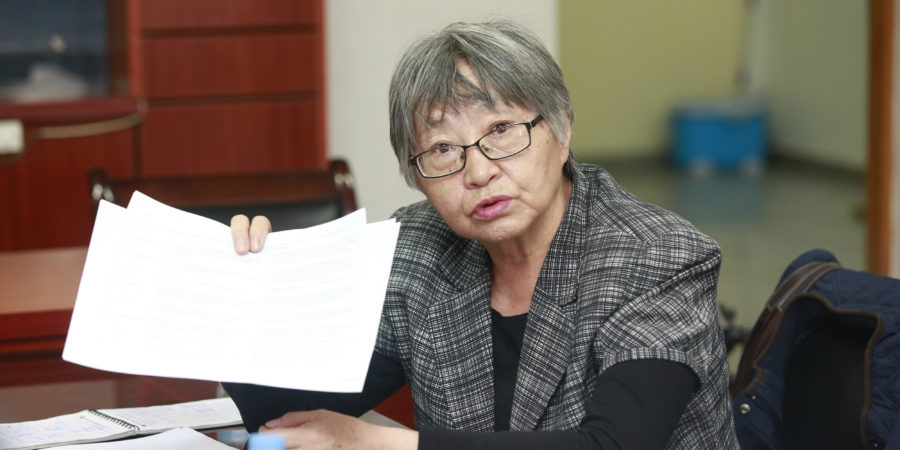13th June 2018 Ulaanbaatar, MongoliaLondon, UK
Media freedom in Mongolia: a Human Rights Defender’s perspective

“If we don’t protect freedom of expression and free press, we will lose democratic values.”
I am a free media advocate from Mongolia, working to ensure fellow Mongolians are able to enjoy their right to freedom of expression both on- and offline. I am passionate about the right to enjoy media freedom and for journalists to be able to work in safety and without fear of the authorities.
Early days
Since 1979, when I graduated in Russia, I have spent my career in journalism and television. When I began there was of course very strict censorship on media, and particularly TV programmes, because Mongolia was effectively a communist country. During my time as a journalist, I was twice called before Party officials to explain my views on the programme I hosted. Things changed dramatically for the better when the country underwent a peaceful democratic revolution in 1990s, though there are still plenty of challenges today.
The UK example
The UK has played an important role in supporting me as a Human Rights Defender – I took on a British Council Fellowship in 1991 through the British Embassy in Ulaanbaatar. This gave me the opportunity to see first-hand a model public service provider, when I was able to undertake a period of job shadowing with the BBC. I returned to Mongolia motivated and full of ideas.
Opportunities
But the road to achieving my ambition of an open and free broadcast media was hampered initially by a desire to protect the dominance of the Government Broadcaster. I had a breakthrough when the Mongolian Journalists’ Union offered me a position on a Danish International Development Agency project – Free and Independent Press in Mongolia – which gave me a platform to better get across my vision of a diverse, competitive media industry. In 2005, the Mongolian Parliament finally enacted a Law on Public Radio and TV, which in effect opened the doors for this. It was a very proud moment for me, having pushed for this on behalf of the people of Mongolia for many years.
The challenges
However, my work did not stop there. I am now President of the Mongolian NGO Globe International Centre (GIC). Mongolia has made great strides as a democratic country (one of few ‘free’ countries in Asia according to Freedom House). There are 485 permanent media outlets in Mongolia (131 television stations, 69 radio stations, 101 newspapers, 86 magazines and 98 news websites). But a young democracy such as ours requires continuous effort to protect freedom of expression. There have been some alarming incidents in recent years, including attempts to block social media and impose more strict media legislation with very high fines for defamation. Safety of journalists and their confidential sources are not as well protected as they should be.
Making a difference
So I feel the work I am doing continues to be extremely important to protect and enhance media rights in Mongolia. The GIC has provided over 100 journalists with free legal advice; provided lawyers and defence services at the courts to seven journalist criminal defamation trials; and organised press conferences making public statements protesting against attacks and harassment against journalists and media. Journalists and the media have a critical role to play in both democracy and development, and I’ll continue fighting to support them.
